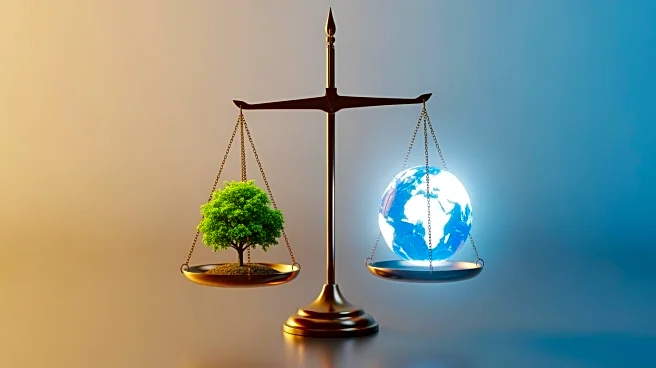What's Happening?
At COP30 in Brazil, delegates are advocating for a comprehensive approach to the just transition in climate change efforts. The conference emphasizes the need for a societal transformation beyond energy
transitions, addressing issues of patriarchy, colonialism, and extractivism. COP President André Corrêa do Lago calls for unity and collaboration, proposing a new form of climate governance that is participatory and supportive. The concept of Mutirão, a continuous method of mobilization, is introduced to foster global cooperation and inclusivity in climate actions.
Why It's Important?
The discussions at COP30 highlight the need for a holistic approach to climate change that addresses social justice and equity. The emphasis on a just transition reflects the importance of considering the broader societal impacts of climate policies, ensuring that vulnerable communities are supported. The call for multilateralism and inclusivity underscores the need for global cooperation in addressing climate challenges. The conference sets the stage for transformative climate governance, promoting sustainable development and community empowerment.
What's Next?
COP30 will continue to explore strategies for implementing a just transition, with delegates advocating for inclusive policies that support marginalized communities. The conference may lead to new commitments and collaborations among nations to advance climate justice. The concept of Mutirão may be adopted as a guiding principle for future climate actions, fostering global solidarity and shared responsibility. The outcomes of COP30 could influence international climate policies and drive efforts towards sustainable and equitable development.








